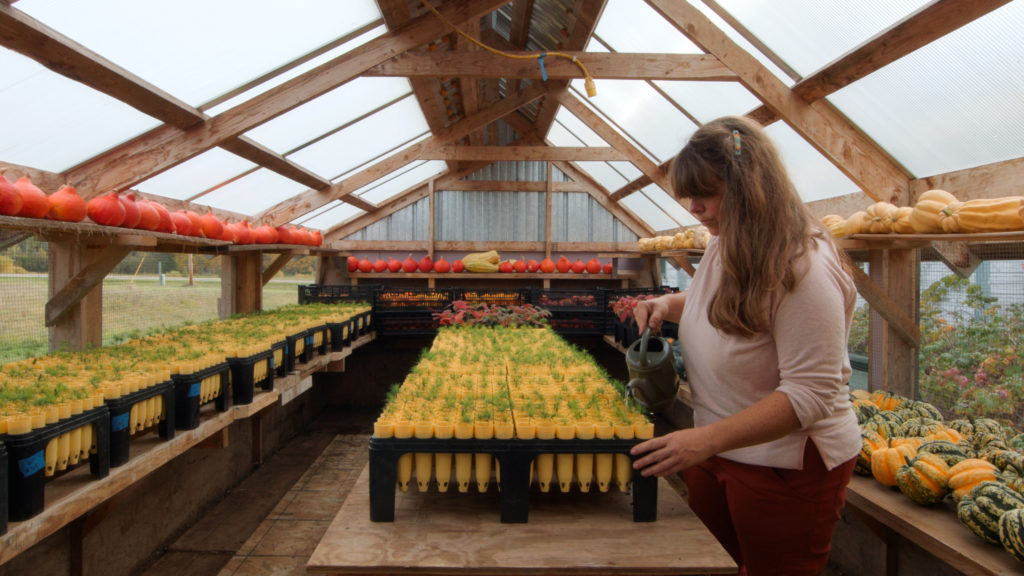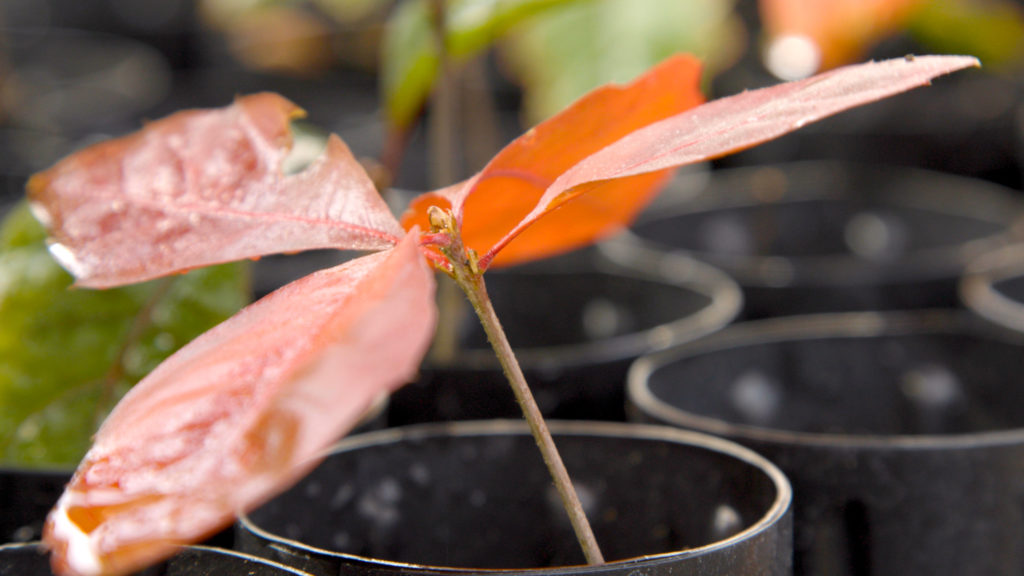Last updated on February 2nd, 2024
“Trees do an amazing job of capturing and absorbing carbon… it seems logical that we would look to nature as part of a solution toward climate change.”
Cree Bradley, Chelsea Morning Farm
Climate change is here. Minnesota’s Northwoods are already experiencing the impacts. In this northern landscape, trees are built to withstand the extremes of winter—the coldest temperatures and the deepest snow. But as the region’s climate becomes warmer—and drier during the growing season—these cold-hardy trees are beginning to struggle.
Northern Minnesota is one of the most rapidly warming geographies in the US— with an increase of 2°C to 3°C between 1895 and 2018. Cree Bradley of Chelsea Morning Farm is living through the loss of the Northwoods, saying that these trees are like old friends.
“It’s such a big problem, climate change—and we need big solutions,” says Bradley.
The Forest Assisted Migration Project is the kind of big solution needed to adapt to climate change in Minnesota. The premise for the project is deceptively simple. For trees that are already growing in northern Minnesota—think white pine, bur oak and red oak—seeds are collected from their more southerly “cousins.” The seeds are sourced from the same kinds of trees, but the parent trees may be better adapted to slightly warmer, drier growing conditions.
Scientific evidence supports an assisted migration approach. For example, research from the University of Minnesota’s Dr. Julie Etterson and The Nature Conservancy has demonstrated that seedlings raised from more southerly acorns have better growth and survival rates than their northern counterparts when planted in the Northwoods.
Another challenge to reforestation across the US is seedling supply—and Minnesota is no exception.

Not only is very little of the state’s existing planting stock climate-forward, but we lack the numbers of seedlings needed to meet demand for forest restoration projects across the state. This seedling shortfall poses a major barrier to helping northern forests adapt to climate change.
In fact, a new study by American Forests and The Nature Conservancy finds that to successfully reforest America, we need to more than double the production of tree seedlings. In Minnesota, that number may be more like six-to-seven times our current production level.
As part of the Forest Assisted Migration Project, farmers like Cree and Jason Bradley are helping to address both problems–seedling supply and climate-adapted planting stock—by producing “climate-smart” trees that can survive as the climate changes around them.
Growing solutions, such as the Forest Assisted Migration Project, can only succeed if we are all pulling in the same direction. In addition to seedling production on small farms, we need a broader initiative that includes state nurseries, Tribal, and other commercial growers to expand seedling production as well —toward an end goal of ~750 million new trees in the state.

Identifying committed buyers up-front is key. Matching the land managers and landowners who need to buy seedlings with the growers who can produce them is key to achieving large-scale reforestation. As part of the project, TNC and other partners signed on to purchase 40,000 seedlings for use in their restoration efforts. Cree and Jason Bradley note that having committed buyers and contracts for seedling purchase is critical to being able to make an investment in growing seedlings as a small-scale operation. Small farmers are not alone in this. Larger nurseries also need to have committed buyers identified and purchase agreements in place to justify making the investment in growing large numbers of seedlings — especially new species or seed sources that are needed for climate adaptation.
Adaptation solutions for Minnesota’s forests are a wise investment. Helping the Northwoods adapt to climate change is essential to sustaining biodiversity, water resources and the region’s timber-based economy—as well as to sequestering carbon as a natural climate solution.
“If we can all step up our role and do more, it’s going to make a difference. But it’s going to take every one of us.”
Cree Bradley, Chelsea Morning Farm
Meredith Cornett is the Climate Director for the Nature Conservancy in Minnesota; David Abazs is Executive Director of the Northeast Regional Sustainable Development Partnership; Julie Etterson is the Director of the Institute on the Environment at the University of Minnesota-Duluth.

